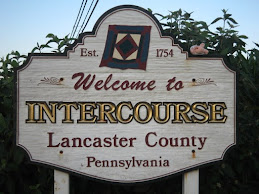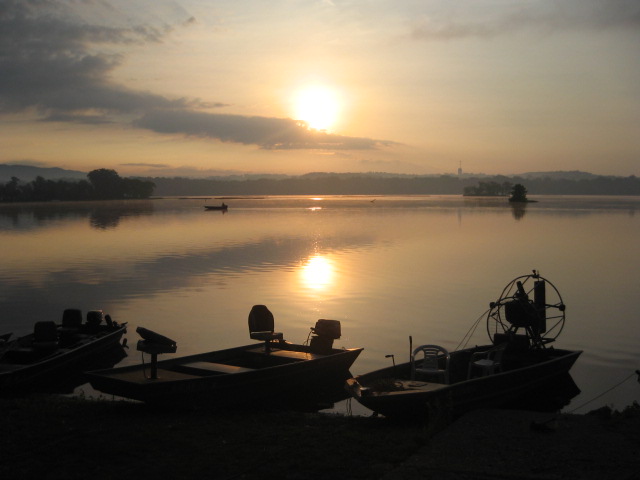So… here's a little story.
My 1.6 readers will know that I am a stepmom. I officially became a stepmom at my wedding three years ago, although I had taken on the duties of a stepmom a few years before that. I have more than a few blogs that I want to write about my experience as a stepmother. This one is my first.
But this little story is about my stepdaughter, Abigale, and her first day at "Kids Club." "Kids Club" is a program that is run by the local YMCA and they provide activities for students at her school from the end of the school day until 5:30, when parents can come and pick their kids up. Abigale, having not two but four working parents, is almost always at Kids Club until at least 5:00.
On her first day of Kids Club, Abigale was six years old. The supervisors laid out the rules that all the children were to follow. Listen to the leaders. Play fair in the games. Nutritious snacks will be given out at 4:15. Ask if you have to go to the bathroom. And NO TOUCHING. NO TOUCHING anyone else when you are on the playground. No playing pattycake games. No high fives. Any questions?
Abigale raised her hand. "Can we hug?"
No. NO TOUCHING on the playground. That means NO HUGGING.
And with that, Abigale got up from the circle, wedged herself in the tiny space between the sofa arm and the wall, and cried.
I know this happened because the group leaders told Abigale's mom, and her best friend, who was with her in Kids Club that day, likes to tell the story because it is an example of how cute Abby was when she was six (she is now ten.) The story is always told with a smile and a laugh and an "out of the mouths of babes" sort of tone. Like it was a sad day for Abigale, but that she would soon come to understand that the playground is no place for kids to freely touch or hug, and that one day she would look back and laugh at her own naiveté.
This story makes me think of two things. First, this. But it also makes me think about how adults have, in the last 15 years, begun to try to control the way that kids play, in the name of "safety." The way that the comfortable, wooden-seated swings of my childhood have been replaced by black rubber "butt squeezers" that make it impossible to propel yourself off of the swing, which was half of the fun. The way that the monkey bars and climbers of my youth have been replaced with candy coloured plastic playground equipment that involves little sense of adventure or discovery. And most importantly, the way we don't send kids outside to play anymore, telling them to come back home when the streetlights come on.
It seems to me that we, as a society, have reached a critical mass of stupidity when it comes to how we regulate kids' play (and perhaps even kids' lives in general.) Gone are the days of unsupervised anything, of getting dirty, of rolling around on the ground.
Last year my family moved to a new home, which backs onto wooded parkland. There are well-defined paths that all lead you to one of two spots, both of which are within 100 metres of our back door. There is a riverbank and two open fields to play in. And since we moved there, my husband and I have encouraged Abby go out and play there with friends. But finding friends whose parents will allow their kids to play in the park with Abby, unsupervised, is proving more difficult than we thought, and she is too scared to go and play out there by herself.
How did we get here? And what are the reasons for our perceived fear? Violent crime is at its lowest point. Despite what we hear on TV shows like "Law and Order" and "Criminal Minds," the instances of children being abducted by strangers are exceptionally rare. Most incidences of child abuse are at the hands of a family member or a friend of a family, which means that, statistically speaking, family reunions are exponentially more dangerous than wooded parklands. And yet, and yet, and yet. Parents are afraid not only of these rare and improbable outcomes, but also of being judged by other parents, as if somehow the amount of rules and restrictions placed on a child are public indications of the relative amount of parental love.
I was lucky enough to also grow up in an area where I had wooded parkland close to my home. I remember endless days of playing in the ravine, of packs of kids running from unfenced yard to unfenced yard. The few yards that were fenced contained pools (which DO have statistically verifiable risks when it comes to unsupervised children.) There were long, involved neighbourhood-wide games of hide and seek and other epic adventures whose rules are not retrievable and would not be understood by my adult mind. My husband and I want Abby to have these experiences. We want her to get out of bed on Saturday morning, grab a piece of toast and run out the back door. We want her to grow up feeling as comfortable outside as she does inside. But it's a lot harder to make this happen when her school imposes sweeping rules that certainly will prevent fights and bullying but also playful tumbling and hugs. It's a lot harder to make it happen when none of her friends are allowed to go out in the woods to play with her. And we do go out with her, but it's just not the same, playing with your parents as it playing with your friends. Nor should it be.
I have hope that things are changing. An excellent article in "The Atlantic", which charts the meteoric rise of "safe" playground equipment, describes a new playground in England. Simply called "The Land" it is filled with wooden pallets, old tires, a rope swing and donated items from neighbours like plastic chairs, mattresses and a walker. It is incredibly popular with the kids who walk there on their own, and invent their own imaginative games, using what they find. There are no rules for play in "The Land," and no candy coloured safety approved playground equipment. And the kids LOVE IT. In the two years that it has been open, the most serious injury sustained has been a scraped knee. Swanson Public School in Australia has abolished all playground rules and let part of the playground become overgrown. The result has been more active and engaged play at recess, which has led to more focus and better results in classes. Students are more physically fit and incidences of bullying have gone down, not up as some of the more nervous constituents had predicted at the outset of the initiative.
And Abby's best friend is now allowed to go out and play in the woods with her. They race out with granola bars and giggles and come back when they want to go for a swim, and we supervise them at the pool, because that's just good parenting. And I don't know, because I am not there to see it, but I bet once in a while, when the girls are constructing their games in the woods, they have themselves a good hug.
Here's hoping that one day, our kids will be allowed to hug again on our playgrounds, too.
Saturday, June 7, 2014
Subscribe to:
Comments (Atom)























